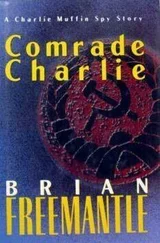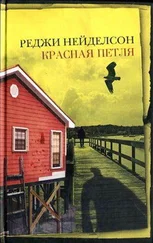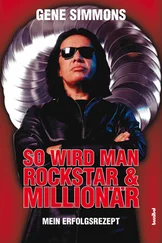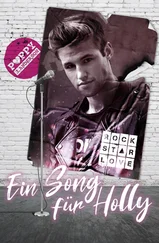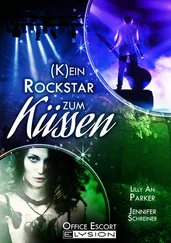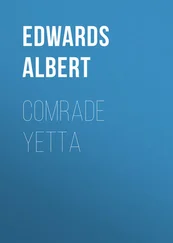"I want a Dean Reed record, please," I said to the clerk at the Melodia record shop on the Leipzigerstrasse, where "Winter Wonderland" was playing. The saleswoman, who had thick ankles and thick glasses, ignored me. I shouted at her the way you do when you don't speak a language and feel that if you say it loud enough in English someone will understand.
"Dean Reed, please. Bitte ?" I added and pointed vaguely at the albums.
"Winter Wonderland" was more her sort of thing. It was the most popular song in East Germany that year except for "Baa Baa Black Sheep." "Oh Tannenbaum" was also high on the charts, but it was almost Christmas.
"Dean Reed, Dean Reed," I insisted, my voice rising. A man with a little green fedora shot me a disapproving look.
"Shhh," he hissed.
The woman with thick glasses turned away impatiently, nodding brusquely towards the door, and so I began to speculate that, even dead, Dean Reed was a non-person, a subject not for discussion in this country where you could not discuss much, not out loud anyway.
Outside, in the streets, the shoppers plodded by, their expressions dour and disengaged. On the Alexanderplatz, a brutal piazza big enough for an army to maneuver in, a wind came up and drove the freezing rain in slanted sheets against us.
" Be Our Guest " in German flickered in neon on the Stadt Hotel. The doorman there loomed up out of the gloom, wielding his umbrella like a Kalashnikov.
" Nein! Nein! Nein! "
He was absolutely furious. We were not hotel guests. Only hotel guests were allowed inside. There were rules. He was the doorman. This was his door.
"Go," he shrieked and hid under the umbrella.
Across the square we found a forlorn espresso bar. Its walls were a sort of distempered duck-egg blue and the table tops were covered in scratched linoleum. But the Flying Pickets were on the sound system and the espresso machine, which had clearly been lovingly cared for, gleamed. It shimmered with the suggestive promise of sunny countries and laughter and good coffee.
"Halifax," Leslie said.
"What?"
"This is Halifax, 1951. Where I grew up. The Bon Bon Coffee Bar on Commercial Street. You could listen to Guy Mitchell and Frankie Laine and Ruby Murray on the jukebox ... you don't know what I'm talking about, do you?"
I ordered something from the menu. It was some kind of chopped beef on toast. Minced, minced beef, I thought. Leslie shuddered.
"That looks like dog's vomit."
The Dog's Vomit Cafe was how I came to think of the duck-egg blue espresso bar on the Alexanderplatz.
"How could Dean Reed have lived here?" Leslie asked, his voice full of disbelief and some despair. "What could he have wanted badly enough to live in this bloody place?"
East Berlin must have had something, something to entice a man like Dean Reed, I thought to myself. Maybe this was just facade; maybe it was too soon to understand. After all, I had friends in London who preferred East Berlin to West, who talked about the opera and museums, the Berliner Ensemble, and the socialist ideals. Maybe it was too soon for me to get it. People in the west sometimes spoke of the quality of friendship in the GDR, the way you could take the time to sit and talk because no one was rushing to work in a country where everyone was always fully employed. A couple of years later, however, when the Wall came down, everyone saw that what lay behind the facade was much worse that it had seemed that first day. Not only ugly, but polluted, impoverished, run by gray-faced old despots with a vicious secret police so ubiquitous that one in every three or four citizens was involved with it.
Right now, though, I wanted a record. There were none in the West because Dean Reed had never played in the West or recorded there.
On the Alexanderplatz was a second record store; in the drizzle, a line had formed outside it. A couple of muscular black American GIs, presumably stationed in West Berlin, passed us and held out their hands, palms up in despair as if to say, "They told us you could get cheap stuff here, but there's nothing to buy."
I could see the record shop was almost empty. Still, our line of forlorn customers stood in the rain because you were not allowed inside without one of the orange plastic shopping baskets which were in short supply. As one customer left the shop, he handed on his basket to the next person in line.
The baskets were too small for the records, though, I realized when I got one and went into the shop. The clerks didn't care if you bought anything either and they were irritated if you didn't have the right change; there was nothing much to want anyway.
Right there in the dreary record shop, I lost whatever was left of my political virginity, of any vestige of the socialist fantasies I was raised on as a "Red Diaper Baby" in Greenwich Village. My mother had been in the Communist Party when she was young, and I came of age in the Sixties when everyone believed in peace and love and universal disarmament. Even in the late 1980s, I probably clung to some kind of sentimental version of it all. I had friends whose parents still stood up when they heard the "Internationale," in one case during a performance of Reds at the movies. ("Down in front," somebody shouted from the balcony. "We want to see them kiss!")
So my absolute conversion to capitalism came with a small orange plastic shopping basket in a record store on the Alexanderplatz in East Berlin. Simple-minded, maybe, but the practical effects, the everyday results of a system, were always a lot more potent than any theory.
Rock records were scarce in the East, though before long rock and roll would be the soundtrack for the revolutions of the late eighties. Swaying mobs with lighted candles would appear in Gorky Park in Moscow; the crowd in Prague's Wenceslas Square in 1989 would rattle their key chains like a cheery punk band to celebrate the Velvet Revolution; in East Berlin, as early as 1987, kids climbed into the trees near the Wall to listen to concerts in the West, or to look at the new Soviet premier who was a lot like a rock star.
"Gorby, Gorby," the kids hanging in trees near the Berlin Wall would shout, as if the Soviet premier were that year's rock star. And, in a way, he was.
Over that year, during my first encounters with the world where Dean Reed lived, I finally saw why. He had been a star. He was an American guy singing the music that everyone yearned for, the music that made you feel alive if you were young. It was the best, most joyful expression of the sedition which was the only way to keep from shriveling up in an oppressive society. In West Berlin, I met a man who smuggled synthesizers and cassettes past Checkpoint Charlie, not for profit, but as a gesture of solidarity with the rock and roll underground.
In the record store on the Alexanderplatz, flipping albums methodically, front to back, in bin after bin, long after I had given up, Leslie scanned each cover and found nothing. Not for the first time that day I had the eerie sense that Dean Reed had never existed in this strange country, where the rules were made to fence people in, to make them conform, to keep them quiet. How could the exuberant cowboy I'd seen on TV have been part of it?
Suddenly, Leslie whispered at me, "Over here."
The album was titled Country Songs and Dean Reed's picture was on the cover. He wore a cowboy hat and he was smiling and he looked wonderful, full of life. I held the album. I touched his hat. I carried it gently in the orange plastic basket to the cashier, who glared at me because I didn't have the right change. I didn't care. Dean was real now; I could touch him.
Outside, we located the rental car and climbed in and decided to risk the trip to Schmockwitz, where Dean Reed had lived. It was not on the map of places you were permitted to visit, according to the day visa printed on the stiff oily paper. All day we had discussed if we should risk it. But it seemed innocent enough, the half-hour drive into the suburbs, and Leslie turned the key in the ignition.
Читать дальше

